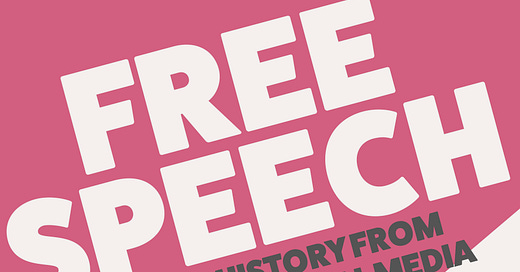Free Speech: A global history from Socrates to Social Media
History has useful lessons to offer in the ongoing fight for free speech, writes Joanna Williams.
Free Speech A global history from Socrates to Social Media, Jacob Mchangama’s compelling global history of free speech, tells the story of man’s ongoing struggle for the most fundamental of all rights. But it also does far more than this: it tells of humanity’s progress through battles for freedom, equality and democracy. It covers scientific developments – the invention of the printing press and the internet – and moments of social and political upheaval from the Reformation and the Enlightenment to the French Revolution and the Civil Rights Movement. It reveals how the struggle for free speech has shaped the world as we know it.
Although the title of Mchangama’s book is Free Speech, he also tells the history of censorship. He details the movements and arguments that have been used repeatedly to justify suppressing speech. The sheer length of this book provides a stark indication of the weight of censorship. The same arguments, even the same metaphors, recur again and again.
‘Pestiferous’ books
Mchangama tells us that five centuries ago, the philosopher and author Thomas More described Protestant writings as ‘a highly infectious disease’, warning that ‘pestiferous’ books were ‘sent to this realm to pervert the people from the true faith of Christ.’ Today, there are frequent calls for social media censorship to tackle the ‘pandemic of misinformation’ that, a House of Lords Committee recently argued, causes harm ‘to individuals, wider society and our democratic processes’.
Similarly, we see that censorship repeatedly occurs through social shaming as much as through legal prohibitions. Mchangama reminds us that the Inquisition relied upon humiliating and shameful punishments more than mass torture and burnings. As the social cost of unorthodox speech skyrocketed, the quest to eradicate heresy shaped Western Europe into a ‘persecuting society’. Modern day heretics such as Kate Clanchy, J. K. Rowling or Kathleen Stock may well consider the persecuting society to be alive and well today.




